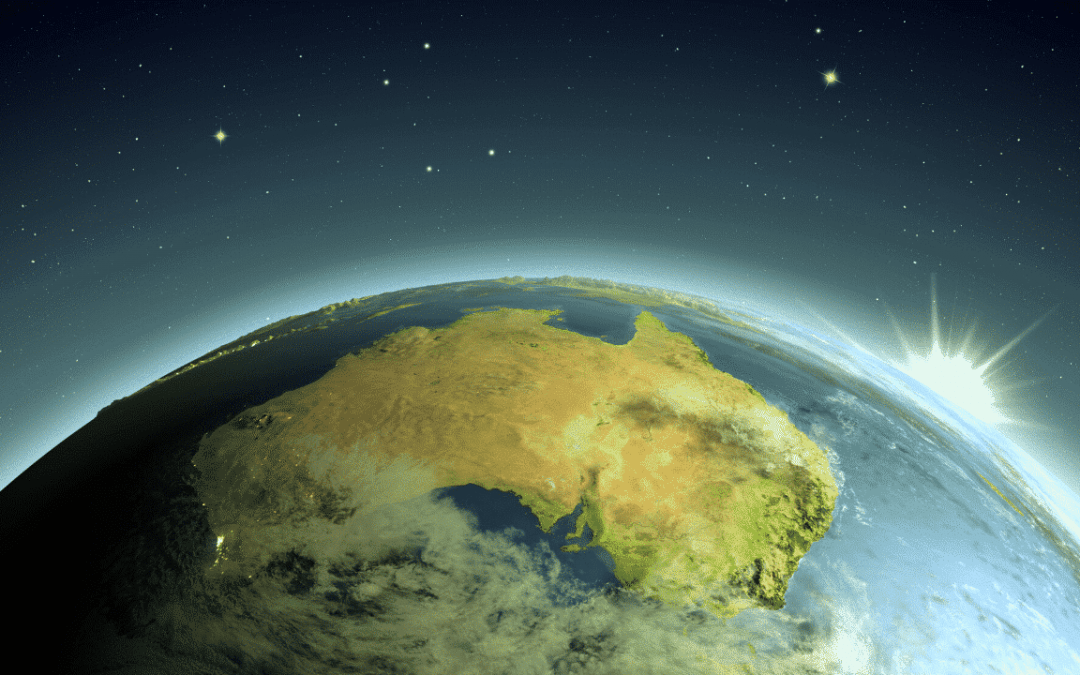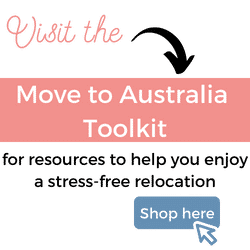I’ve been quiet on social media, in my Facebook group and on the blog lately. It’s hard to know what to say.
I’m sure you already know this but parts of Australia are on fire right now. There have been fires for weeks and they are likely to carry on burning for quite a while yet.
I’m in Moreton Bay, Queensland – a long way from the fires. I haven’t been directly impacted and I can’t begin to imagine what it’s like for people whose communities have been destroyed or whose homes (and lives) have been under threat. I can’t imagine how hard it is for the families of the firefighters who are tackling these blazes (many of them taking endless days and weeks off work as unpaid leave and annual leave). I’m totally heartbroken for those who have lost lives, for those who have lost homes, and for the wildlife that has been destroyed. I’ve never seen anything like this in my life.
People keep messaging me and asking me whether they should still consider moving to Australia or whether they should go ahead with their planned holiday here. It’s an impossible question to answer with a simple reply, but here are my thoughts.
Australia is a vast country – really, really vast. There are fires in some places. There aren’t fires everywhere. Every year, we have bushfire season – that isn’t unusual. This year, that season has been worse and this has been exasperated because of the extremely dry conditions we’ve experienced.
Many towns, cities and communities in Australia are still open and unaffected. If you have a holiday planned, it’s sensible to avoid the fire-stricken areas for the time being and instead to visit the stunning areas that are open and welcoming tourists. Don’t assume the fires you see on the news are everywhere as they really aren’t.
If your holiday plans involve the regions that have been directly impacted by the fires (or indirectly affected by smoke), try to find out as much as you can about what is going on in the area. Ask the hotel where you’re planning to stay for an update on their immediate situation or speak to your tour operator. Check out the fire apps to see how close fires are to the area. Check some air quality apps – there are lots you can get for your phone. Check the news for the area. Wind can mean the poor air quality affects areas far away from the fires too depending on the direction of the wind.
>> This post on Australian Traveller has lots of valuable information about how to know where is safe to travel.
I know some people who had holidays booked within Australia and had to cancel at the last minute due to the threat of fires in that area. They weren’t eligible for a refund. It’s times like this having travel insurance is really important (and if I’m being honest, that’s not something I’ve previously taken out for holidays within my home country but it’s something I will from now on if I am travelling somewhere that could be affected by an emergency like a fire or extreme weather conditions).
When the fires have gone and things have calmed down, we will need tourists to come back to those regions to help them get back on their feet again. It won’t be easy to rebuild, so those tourism dollars will be essential. Shops, accommodation, attractions and service businesses in the regions will all have lost a significant income even if they haven’t actually been in the path of the fire. The ramifications of the fires are going to be huge. When it is safe, please return to those areas and spend your money there.
As for the question, should I still move to Australia? I think if it’s what you want to do, you shouldn’t let the fires stop you. These fires have been devastating but all countries are facing their own threats around the world. The fires this year have been the worst on record. Next year hasn’t happened yet. Make the move with open eyes and do your research on areas carefully.
I saw on the news that some of the communities that have been devastated by the fires this season have never faced a bushfire threat before. It’s possible they might not face this threat again for many more years (let’s hope).
I’ve been reading as much as I can about the reasons for the worsening fires in Australia. I’ve seen so much volatile information on the news, and so much of it is coming from people’s heightened emotions rather than from facts which is totally understandable at this time. Now, more than ever, it’s important to read a lot and be informed from all sources to make up your own minds.
I keep seeing people on social media argue that the fires are caused by people and not a result of climate change. Yes, some of the fires are started deliberately (and many are started by people accidentally). This isn’t a reason to say that climate change isn’t a factor in this season’s bushfires. The drought we’ve faced in Australia is what has made the conditions so much worse than ever. And the current climate is a direct result of climate change.
People are using the fires as an excuse to blame political parties. The Green Party, in particular, is facing criticism with people saying they prevented hazard reduction burns. This post by Fire and Rescue NSW responds to that (see the full post here) but here is a snippet:
‘Political parties of any denomination do NOT influence the decisions of organisations like FRNSW, ACT Fire and Rescue, ACT and NSW Rural Fire Services and Parks and Wildlife Services when choosing when and how to do Hazard Reduction burns. It just doesn’t work like that. The main reason Hazard Reduction burns are cancelled or delayed is due to the predicted intensity of the burn exceeding the limits that would make it safe for firefighters, native flora and fauna and obviously you wonderful people.’
I’ve also seen a number of people complaining that it’s no longer easy to carry out their own hazard reduction burns on their own land because of rules and red tape. In the comments of the above Facebook post there is one such comment made and this is the reply of the fire service:
‘As a fire service we do have to strike a balance between allowing people to privately conduct land management and the overall interest of public safety and that of our native flora and fauna. There has been quite a number of instances in which privately held hazard reductions have been unable to be contained and ended up causing large wildfires that cause millions of dollars of damage, hence why there’s procedures in place for being issued permits to burn and the like. We certainly understand your frustrations, lots of our Firies here at 428 are from the bush and have their own large properties. That one fire that escapes can end up being the size of the Currowan or Gospers Mountain Fire, that’s our bottom line that we have to consider is protecting life and property.’
The rules aren’t there to create problems – they’re there to try to avoid them.
>> This post on The Guardian is also well worth a read.
Climate change is making every country face extreme events – whether that be floods, extreme cold or extreme heat and drought. Australia has some very serious challenges ahead.
I hope that when the threat passes, a lot can be learned from the disaster this year so that next year the country can be more prepared. Australia is a country where people pull together – there must be solutions that can be put in place to reduce the severity of bushfire season so we don’t face another one like this. Climate change needs to be taken seriously at last and given the platform it deserves in politics as it affects all of us.
Will bushfires happen again next year? Of course – it’s part of life in Australia. Will bushfires stop me from living here and travelling? No, not at all – I will just continue to be aware and stay up to date with the news and local alerts.
I’m not one for letting ‘what ifs’ hold me back from doing something. This is the time for us all to stand up and use our voices to activate change where it’s needed to protect our beautiful country. But right now, we need to support the communities that are suffering.
How can I help the bushfire crisis in Australia?
There are lots of things you can do to help the current bushfire disaster.
Fire services
You can donate directly to the fire services involved:
Support NSW Rural Fire Service. Visit this page to find out how to make donations
Support Victoria’s Country Fire Association. Visit this page to make donations.
Wildlife support
You can donate to support the wildlife emergency:
WIRES helps NSW wildlife. Find out more here.
Wildlife Victoria supports Victoria’s wildlife shelters. Find out more here.
Help those directly affected
You can make donations to help those organisations directly dealing with the communities involved:
The Salvation Army is running a disaster appeal. Learn more here.
The Australian Red Cross is helping communities to recover and offering emergency assistance. Donate here
People worth following right now
Some people have stepped up into leadership roles at this time of disaster. They’re doing a great job of showing us what action we can take to feel like we’re actually making a difference.
Lisa Messenger has done an amazing job of activating people in this emergency. Her Instagram is filled with details of what is needed where. It is really inspiring to see. Follow Lisa on Instagram here.
Celeste Barber has created an incredible campaign to raise funds for NSW Rural Fire Service. Find her fundraiser here
Leonie Dawson has written a fantastic post that shows what you can do as an individual to have an impact on climate change. These include: making better personal choices around things impacting the environment; working to activate change in government policy; being philanthropic by supporting non-profits through donations and time; and sharing our message with others. Leonie has a number of useful links in her post if you want to learn or do more. Read the post here.
The bushfires will end, but the fight against climate change won’t
As I wind up the post, I just want to remind you: Australia is facing some enormous challenges. Even areas not affected by the fires have other disasters in the making (such as the threat to the Great Barrier Reef which is being damaged by rising sea temperatures, rising sea levels, changes in the ocean’s chemistry and the increased number of severe weather events).
Climate change is here right now and we need to stop blaming everyone as we can’t change the past. Instead, we must focus on the solutions and the future. The fires may be out of our control, but we can control our reaction to them. We can be logical. We can be vocal. We can refuse to listen to fake or incorrect news. We can read the facts and make up our own minds. We can add our weight to important causes. We can share what we know with others.
Australia is a stunning country filled with natural attractions, incredible wildlife and some of the friendliest people you’ll ever meet. Climate change is the greatest economic and environmental threat to our home. I’ll leave you with this Instagram post from Greta Thunberg to sum things up:
Stay safe, everyone.
















